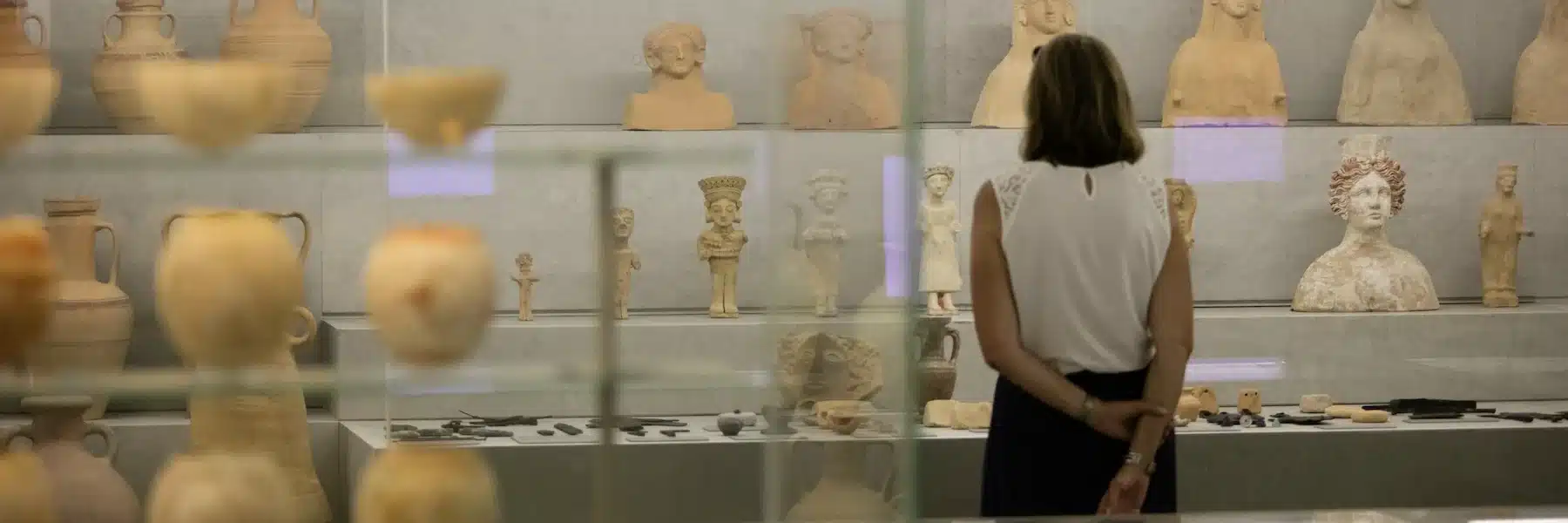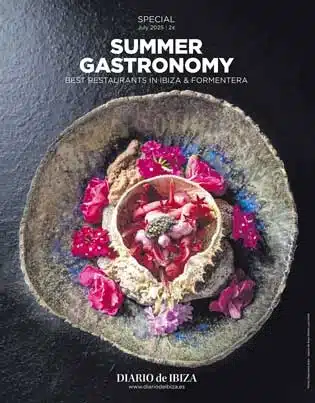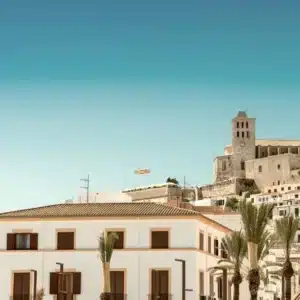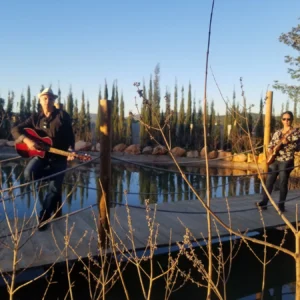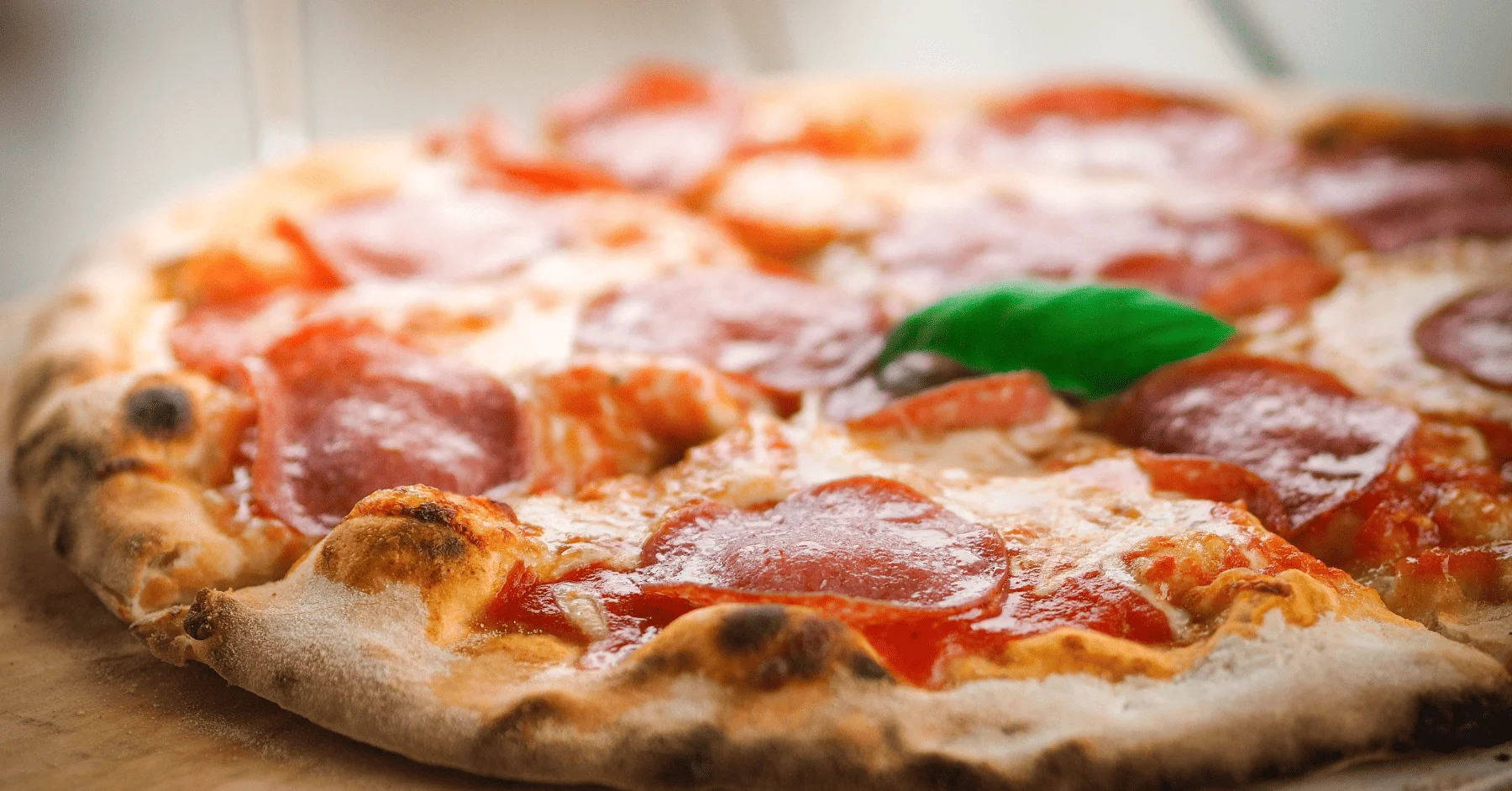The Ibiza museum scene offers an incredible journey into the island’s diverse history, with three essential stops: the Monographic Museum and Necropolis of Puig des Molins, the Archaeological Museum of Ibiza and Formentera, and the Madina Yabisa Interpretation Centre.
Each museum unveils a distinct chapter of Ibiza’s cultural evolution, immersing visitors in everything from ancient burial practices to the medieval Islamic period.
Monographic Museum and Necropolis of Puig des Molins: unearthing ancient burial practices
Situated on the southwestern slope of Ibiza Town, the Monographic Museum and Necropolis of Puig des Molins is a testament to the island’s ancient burial traditions. Established in the 7th century BC by the Phoenicians, this necropolis is among the most extensive and well-preserved of its kind in the western Mediterranean. The site derives its name from the windmills (“molins” in Catalan) that once adorned its summit.
Visitors can explore over 3,000 tombs, known as hypogea, carved into the rock. This museum’s exhibits provide insights into the funerary customs of the Phoenician, Punic, and Roman eras, showcasing artefacts such as amulets, pottery, and the iconic bust of the goddess Tanit. Interactive displays and detailed explanations offer a comprehensive understanding of ancient burial rites and beliefs.
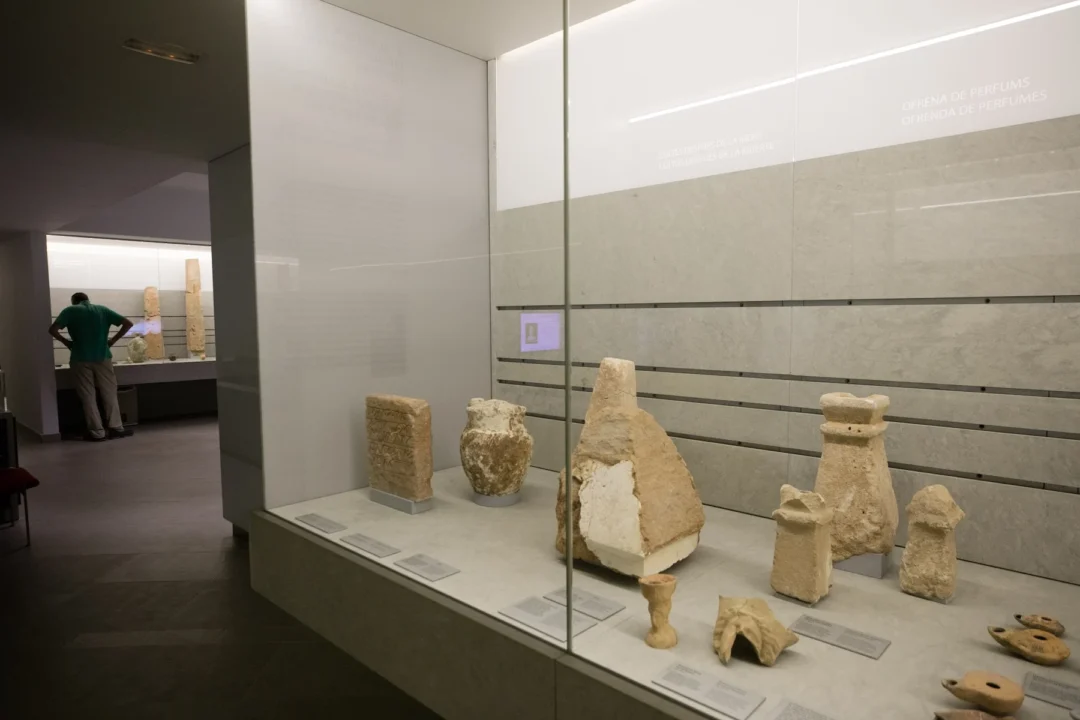
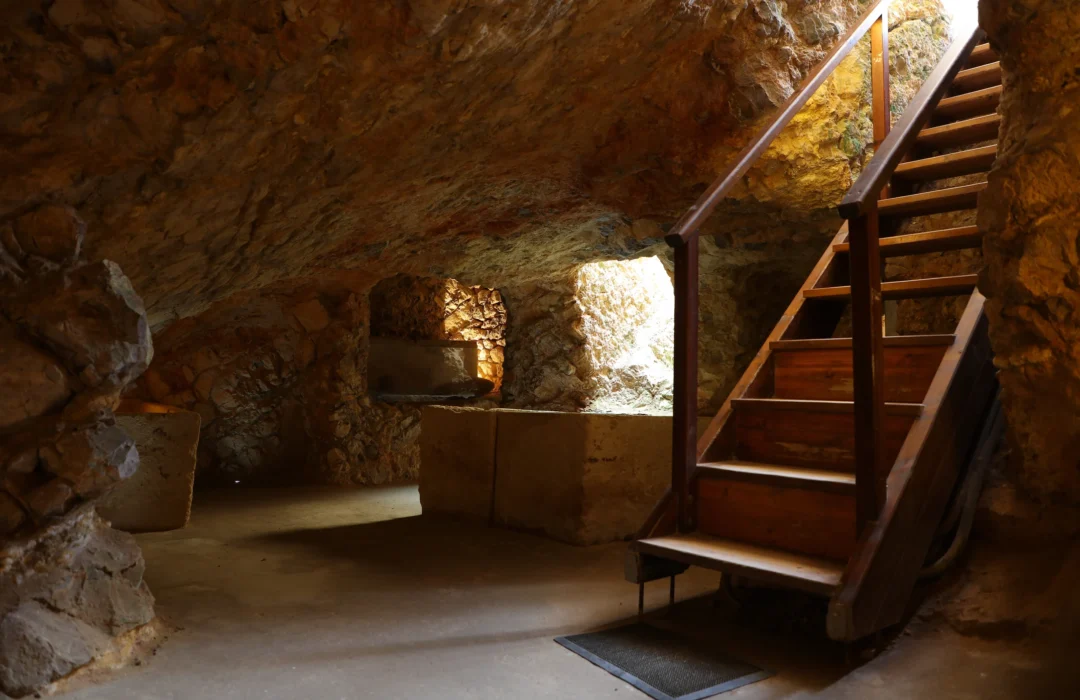
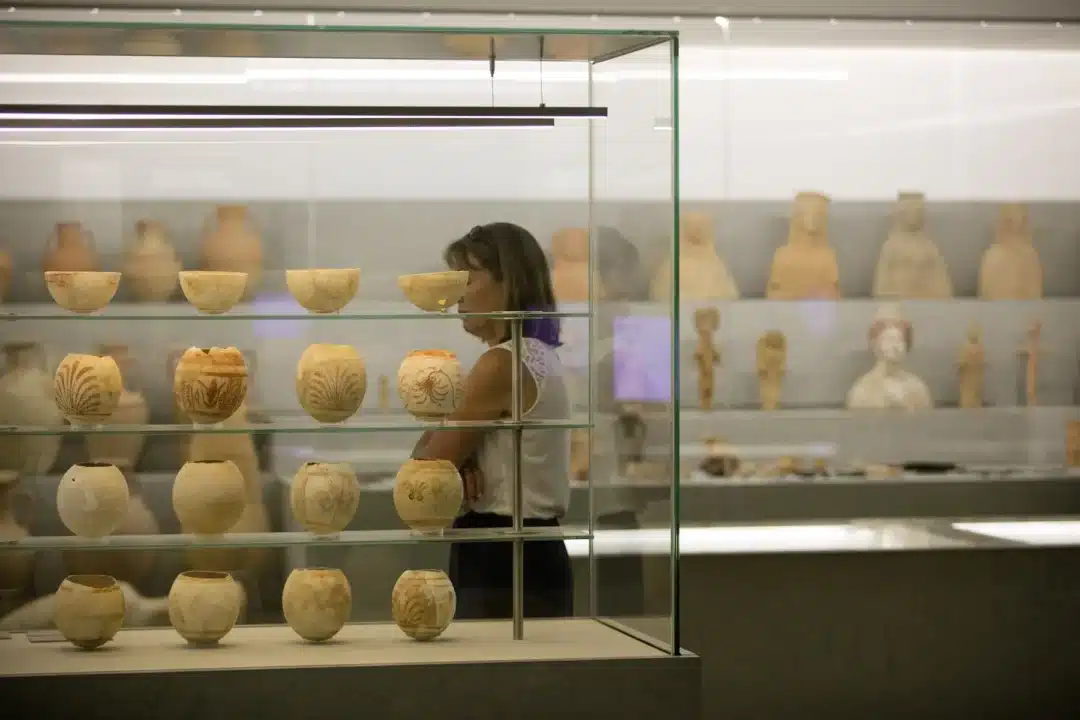
Practical information:
- Location: Via Romana, 31, 07800 Ibiza Town.
- Opening Hours:
- Tuesday to Thursday: 9:00 a.m. – 3:00 p.m.
- Friday: 9:00 a.m. – 3:00 p.m. and 5:00 p.m. – 8:00 p.m.
- Saturday: 9:00 a.m. – 2:00 p.m.
- Sunday: 10:00 a.m. – 2:00 p.m.
- Closed on Mondays and public holidays.
- Admission Fees: currently, admission is free.
Archaeological Museum of Ibiza and Formentera: a chronicle of the Pityusic Islands
Perched atop Dalt Vila, Ibiza’s historic old town, the Archaeological Museum of Ibiza and Formentera offers a panoramic journey through the island’s history, from prehistoric times to the 15th century. Established in 1907, this Ibiza museum occupies several historic buildings, including the former chapel of San Salvador and the ancient University.
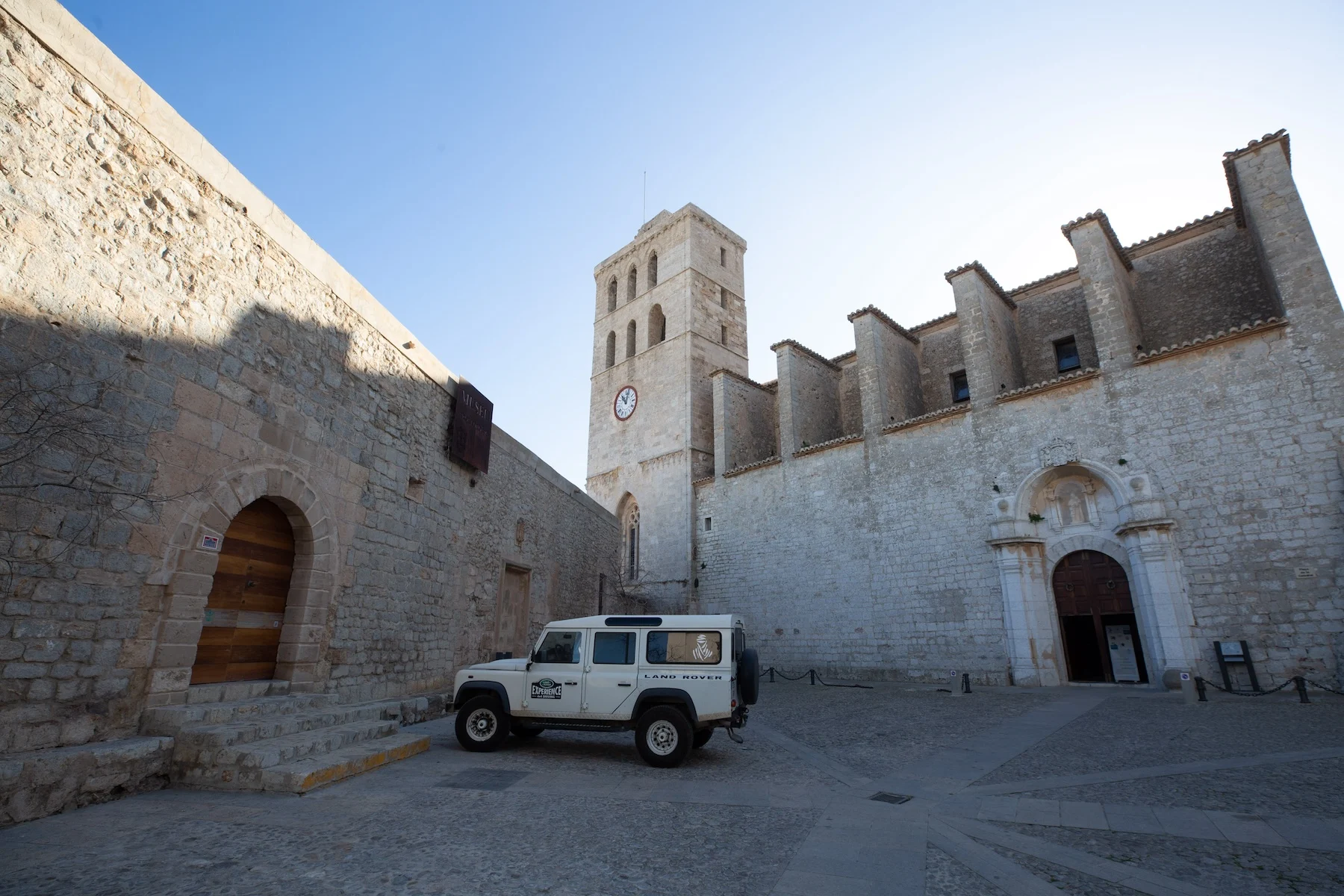
The museum’s extensive collection encompasses artefacts from various periods:
- Prehistoric era: tools, pottery, and other relics from the earliest inhabitants of the Pityusic Islands.
- Phoenician and Punic periods: items reflecting the island’s significance as a Phoenician settlement, including ceramics, jewellery, and religious artefacts.
- Roman era: coins, mosaics, and everyday objects illustrating life during Roman rule.
- Medieval period: exhibits highlighting the island’s evolution through the Middle Ages.
Practical information:
- Location: Plaza de la Catedral, 3, 07800 Ibiza Town.
- Current status: this Ibiza museum is temporarily closed for renovations.
- Contact: for updates on reopening and other inquiries, visitors can contact the museum at 971 176 090.
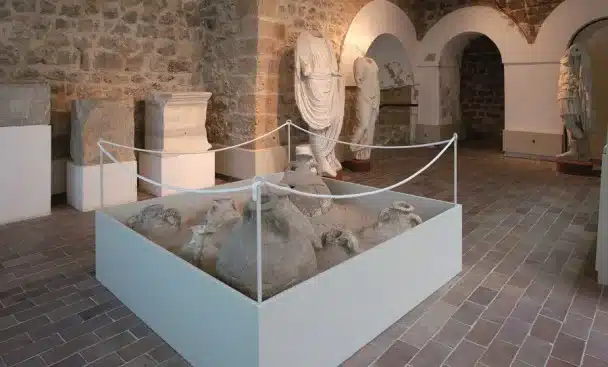
Madina Yabisa Interpretation Centre: tracing the Islamic legacy
Nestled within the historic walls of Dalt Vila, the Madina Yabisa Interpretation Centre delves into Ibiza’s Islamic period, spanning from the 10th to the 13th centuries. The centre is housed in the Casa de la Cúria, a building of significant historical value.
Through multimedia presentations, interactive displays, and archaeological findings, visitors gain insights into:
- Urban development: the layout and expansion of the medieval Islamic city.
- Daily life: artifacts and exhibits depicting the daily activities, trades, and customs of the era.
- Cultural interactions: the influence of Islamic culture on Ibiza and its integration with subsequent Christian traditions.
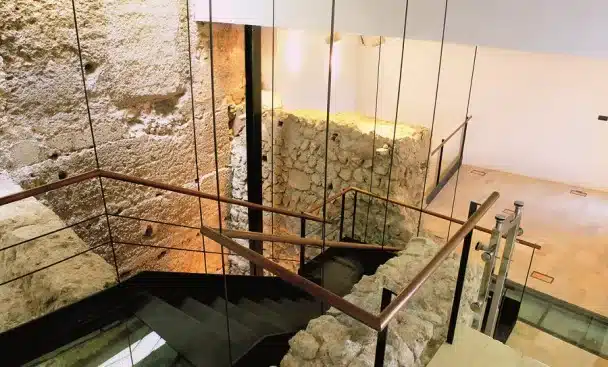
Practical information:
- Location: Calle Mayor, 2, 07800 Ibiza Town.
- Opening hours:
- Until 31 March:
- Tuesday to Friday from 10:00 a.m. to 4:30 p.m.
- Saturday and Sunday from 10:00 a.m. to 2:00 p.m.
- Closed on Mondays and public holidays.
- From 1 April to 30 June and from 1 to 30 September:
- Tuesday to Friday from 10:00 a.m. to 2:00 p.m. and from 5:00 p.m. to 8:00 p.m.
- Saturday and Sunday from 10:00 a.m. to 2:00 p.m.
- Closed on Mondays and public holidays.
- July and August:
- Tuesday to Friday from 10:00 a.m. to 2:00 p.m. and from 6:00 p.m. to 9:00 p.m.
- Saturday and Sunday from 10:00 a.m. to 2:00 p.m.
- Closed on Mondays and public holidays.
- Until 31 March:
- Admission fees:
- General admission: €2.10.
- Reduced admission: €1.05 (for students, retirees, and groups over 10).
- Free admission for residents of Ibiza.
Ibiza museum scene: discovering the island’s unique past
Beyond its modern attractions, the Ibiza museum scene reveals hidden chapters of the island’s history, from ancient burial practices to Islamic urban life. Each museum provides a unique lens on Ibiza’s development and culture. Whether you’re captivated by the depths of ancient tombs, intrigued by artefacts from the Phoenician and Roman periods, or eager to learn about medieval life, these Ibiza museums offer invaluable insights.
For travellers who want to explore more than the beaches and nightlife, a visit to these cultural sites is essential. Not only do they showcase the island’s fascinating past, but they also offer peaceful, contemplative spaces to appreciate Ibiza’s ancient heritage.
Each Ibiza museum brings a alt vildifferent layer of the island to life, from Puig des Molins’ burial grounds to the treasures of the Archaeological Museum and the medieval echoes of Madina Yabisa. When in Ibiza Town, set aside time to visit these landmarks and step back through centuries of history—these are experiences that will enrich any visit to Ibiza, bringing a new depth to your understanding of this vibrant Mediterranean island.
